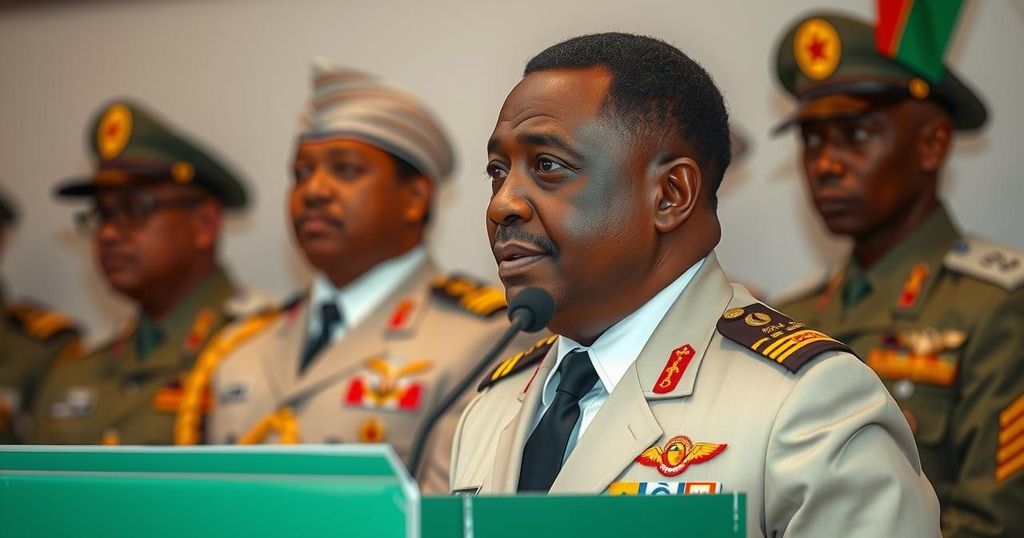Chad Holds Parliamentary Elections Amid Opposition Boycott and Military Transition
Chadians are voting in parliamentary elections intended to conclude three years of military rule, but major opposition groups are boycotting, claiming the electoral process lacks credibility. This election marks a significant moment in Chad’s political landscape as the first parliamentary vote in over a decade, amid tensions surrounding the leadership of Mahamat Idriss Deby.
Chadians have participated in a parliamentary and regional election, marking the end of a three-year transition from military governance. Despite the significance of this event, major opposition groups have chosen to boycott the election, citing concerns over the credibility of the electoral process. This election represents Chad’s first parliamentary vote in over a decade and follows a disputed presidential election that solidified the power of ruling junta leader Mahamat Idriss Deby.
With a population of approximately 18 million, Chad has not experienced a legitimate change of power since gaining independence from France in 1960. The current election is significant as it is the first in the Sahel region under military-led governance to adhere to a planned return to democracy. Approximately 8 million voters are registered to participate in electing 188 legislators for the new National Assembly, along with local representatives, with results anticipated in two weeks.
The main opposition party, Transformers, which previously contended in the presidential election, describes the parliamentary election as a sham designed to secure Deby’s rule, perpetuating a dynastic leadership. Party leader Succes Masra has expressed confidence that the election outcomes will be manipulated, advising constituents to abstain from voting. Furthermore, the opposition group GCAP maintains its stance against endorsing the elections, arguing that participating in a predetermined loss would lend legitimacy to an oppressive regime.
As Chad grapples with severe security issues, including threats from Boko Haram and deteriorating relations with France, the implications of this election are profound. Political analyst Mahamat Oumar Adam emphasized the importance of ensuring a genuine transition away from military authority, cautioning that a lack of opposition undermines this process.
In summary, the elections in Chad reflect a pivotal moment as the country emerges from military rule; however, the absence of significant opposition raises questions regarding the authenticity of the democratic process. The outcomes of this election may determine the future trajectory of governance in Chad, making it crucial for stakeholders to monitor the developments closely.
The parliamentary elections in Chad mark a critical transition from military rule to a more democratic governance structure after a prolonged period of political instability. Following the death of long-time president Idriss Deby Itno in 2021, his son Mahamat Idriss Deby took the helm through a junta, leading to widespread calls for a democratic return. Historically, Chad has faced significant challenges regarding political legitimacy and electoral integrity, making this election especially noteworthy. While it aims to restore democratic principles, the widespread boycott by opposition parties highlights enduring grievances around the electoral process and leadership.
In conclusion, the parliamentary elections in Chad signal a potential conclusion to military rule, yet the opposition’s boycott indicates significant skepticism regarding the electoral integrity. With approximately 8 million registered voters, the legitimacy of the elections is already under scrutiny. The outcome will crucially shape Chad’s political future, necessitating a sustained focus on democratic governance and civic engagement in the coming months.
Original Source: abcnews.go.com




Post Comment